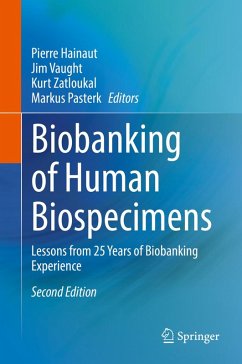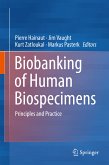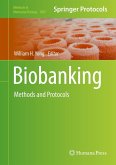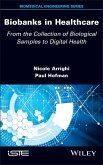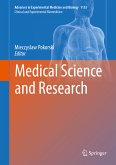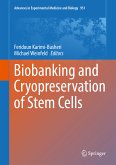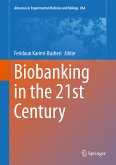Over the past 25 years, biobanks of human specimens have become a cornerstone for research on human health and have empowered the "omics "revolution that characterizes biomedical science in the 21st Century. Today, biobanking of human specimens is a critical component of the interface between clinical practice and translational research, supporting the discovery and validation of new biomarkers of disease etiology, risk, early detection, diagnosis, prognosis, prediction and relapse. With the development of personalized medicine, biobanking of cryopreserved specimens has become standard practice in order to investigate genetic, transcriptomic, proteomic, metabolomics and immunological biomarkers useful to inform caregivers for therapeutic decisions.This book is the first comprehensive text on the market about human biobanking, and is a timely follow up to the editor's 2017 volume Biobanking of Human Biospecimens: Principles and Practice. Written by leading scientists and regulatory officers in the field, the books can be read and used independently, but together, offer a deep understanding of all aspects of human biobanking as a central practice for research and medicine. The aim of the two volumes is to provide a published "one-stop shop" for state-of-the-art information on what constitutes the field of human biobanking, from conception of a biobank, standard operating procedures, ethical and societal aspects, governance, networking, interoperability and economic sustainability. This inclusive publication concept meets the needs of a vast readership, including scientists, doctors and technical staffs who are directly involved in biobanking operations, scientists in other disciplines that heavily rely on biobanking (such as genomics or proteomics), stakeholders and policy makers, and students for whom biobanking is becoming an important part of the training curriculum.
Dieser Download kann aus rechtlichen Gründen nur mit Rechnungsadresse in A, B, BG, CY, CZ, D, DK, EW, E, FIN, F, GR, HR, H, IRL, I, LT, L, LR, M, NL, PL, P, R, S, SLO, SK ausgeliefert werden.

